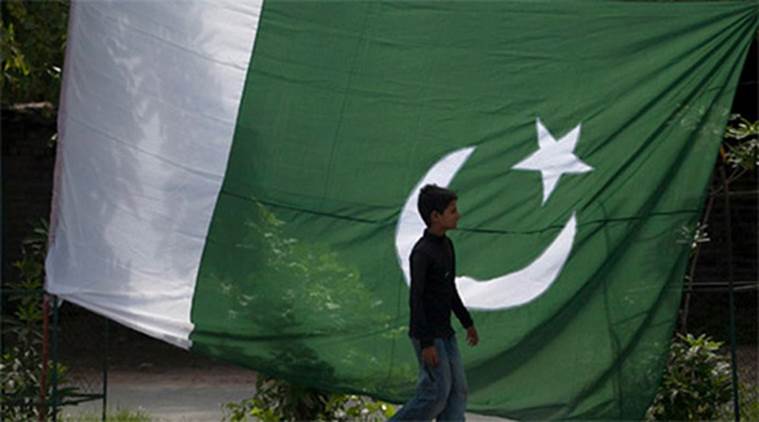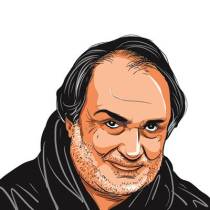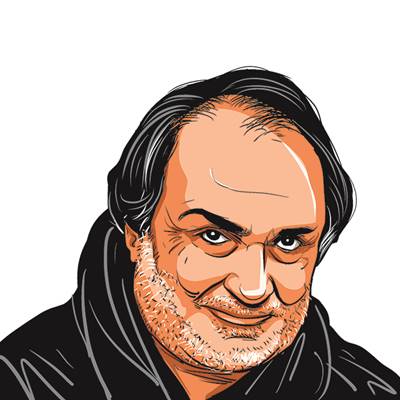Ideology vs State
Wrangling politicians of Pakistan call themselves ‘ideological’. What could they mean?

Politicians in Pakistan refuse to acknowledge that the “ideological” articles in the constitution that have overthrown a prime minister and nearly killed an interior minister are the foundation of the “totalitarianism” or “fascism” that is undermining the state. (Representational Image)
These days all political leaders in Pakistan declare themselves “nazriati (ideological)”. They think it describes them as disciplined thinkers who stick to party manifestos and are not scatter-brained — which they intellectually are. But “ideological”, as a term, died at the end of the 20th century with the end of the Soviet Union. The Russian revolution, based on communism, claimed to be “ideological”, which Marx took from the French Revolution.
But the French Revolution was in part an attack on organised religion, and the new revolutionary ideology was to lay down new moral guidelines previously supplied by the churches. The French Revolution imposed an oppressive anti-religion ideology that killed those it thought were opposed to reason. It has often been suggested that the invention and rise of ideology was a collective psychotic response to the waning of traditional religion in the West. But Pakistani leaders are not thinking of that kind of ideology.
They are harking back to the creation of Pakistan, which was proclaimed by the Muslim League as an “ideological state” after 1947, as opposed to “secular” India. Maybe the founders were inspired by the Soviet Union, but one can’t imagine Pakistan following atheism as one of the characteristics of the state. Or simply, if communism was the “ideology” of the Soviet Union, then Islam was the ideology of Pakistan. Alas, in the West, Hannah Arendt was quick to describe the ideological state under communism and fascism as “totalitarian”, a monolith of power that suffers little formal opposition.
The totalitarian state was created in truer sense in Iran by the 1979 revolution. Under Islam there can’t be a formal elected opposition just as in the utopia of the Soviet Union there could be no opposition. Therefore, Iran qualifies for the label of “totalitarian” while Pakistan remains “imperfectly” Islamic and therefore not totalitarian. It can be compared to Turkey, which is turning to Islam under Erdogan and may in the ripeness of time become “ideological” like Pakistan but beat it to the label of totalitarianism.
India, under the authority of RSS, promises to follow in the track of Turkey, despotic with a high growth rate. Pakistan created its Council of Islamic Ideology but has ignored its recommendations as too oppressive to women and the minorities and too out of tune with the times. Yet its penal code protects “nazaria-e-Pakistan (ideology of Pakistan)” by punishing any violation of it. As an ideological state, Iran doesn’t have a formal opposition just like the Soviet Union and runs the risk of being called totalitarian. It is impossible to decipher what the mutually wrangling politicians of Pakistan mean when they call themselves ideological.
In a recent article, Pakistan’s nuclear physicist, Pervez Hoodbhoy, has taken note of “India going Pakistan’s way”. He lists the recent right-wing fringe assault on India’s first prime minister, Jawaharlal Nehru: “Nehru was degenerate and dissolute; claimed to be a Kashmiri Pandit but secretly ate onions; and from age 19 onwards would be drunk every day starting at 9 am” and so on. As with America’s alt-right which insists that Barack Obama is a closet Muslim, Hindutva activists allege that Nehru’s grandfather was a Muslim kotwal serving the Mughal court.
Ideologically, Pakistan, too, has demonised Nehru, “the Hindu”, who imposed his community’s majoritarianism on India and played foul with Pakistan in cahoots with the British Raj. Nehru’s pluralism was the opposite of what the Muslims had in mind. If India under Modi is thinking like the Pakistani textbook, it doesn’t bother Pakistan much despite the fact that Pakistan has not done well being an ideological state. Nehru was into socialism of the Fabian variety which led to low growth. In Pakistan, too, Zulfikar Ali Bhutto followed in his footsteps — as foreign minister under General Ayub he left behind an essay on the wisdom of Nehru in the files of the Foreign Office — and the economy languished.
But India will not be punished for electing Modi just as secularists languishing in jails in Turkey under Erdogan will be ignored because of Turkey’s prosperity. By filling school textbooks with “ideology”, India may be imitating Pakistan but Modi will be forgiven his religious trespasses because of the steady growth rate under him. Pakistan sets itself apart from both Modi and Erdogan: Its economy is belly-up and its ideology shows no sign of cooling off despite “failed-state” realities.
Politicians in Pakistan refuse to acknowledge that the “ideological” articles in the constitution that have overthrown a prime minister and nearly killed an interior minister are the foundation of the “totalitarianism” or “fascism” that is undermining the state.
The writer is consulting editor Newsweek Pakistan
For all the latest Opinion News, download Indian Express App
More From Khaled Ahmed
- Remembering Charanjit SinghCharanjit Singh was killed by those fed on an ideology that demonises non-Muslims in Pakistan ..
- Unhappiest In South AsiaThe unhappiness rankings need to take note: The lack of joy in Pakistan is palpable ..
- Reluctantly, MalalaMany in Pakistan reject her. Her own country remains impervious to her message...








































No hay comentarios:
Publicar un comentario